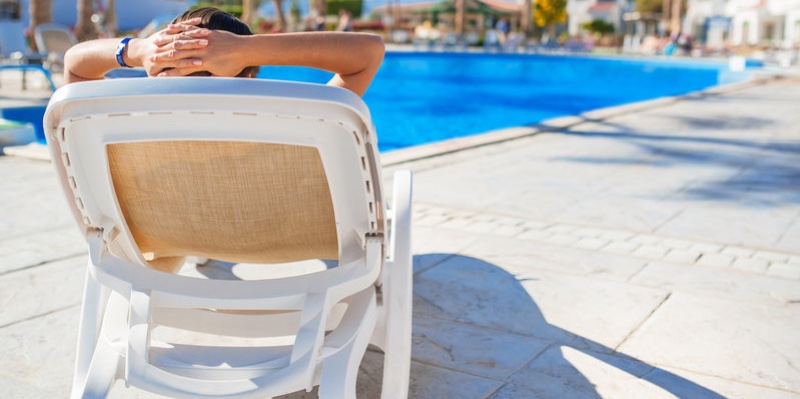With Fluence’s proven Aspiral™ wastewater treatment, hotels and resorts can treat wastewater in-house without ruining ambiance.
With options like Fluence’s Aspiral™, treating wastewater in-house is now an attractive option for a variety of reasons
In studies of water stress around the world, experts point to the important role that wastewater recycling will play in the future. This is pertinent for hotels and resorts, which use large amounts of water and in most cases, waste a great deal of increasingly costly drinking water on jobs that can be safely accomplished with nonpotable water.
The good news is that a lot of the wastewater produced by hotels can be economically treated for reuse, increasing the supply of available water. And a new generation of hotel-ready wastewater treatment equipment is waiting to do just that. What are some of the factors hotels should consider before making the jump to in-house water reuse?
Lower Costs Now
Some studies have shown that each occupied hotel room uses between 100 and 200 GPD of drinking water, for an annual average of 36,500 to 73,000 gallons per room. With water charges increasing, water efficiency can significantly lower operating costs. Many hotels have already benefited from installing low-flow fixtures in bathrooms. The next step in water efficiency is water reuse.
For example, a hotel with outdoor water features and landscaping is missing a golden opportunity if it pipes its laundry grey water into a sewer line. Many more hotel wastewater streams are suitable for treatment and reuse, from food-service wastewater, to water from bathroom fixtures, to stormwater from roofs, grounds, and parking lots.
The uses for safely treated recycled water go beyond landscaping. They include:
- HVAC cooling tower makeup water
- Water for flushing toilets
- Water for pressure-washing drives, walkways, and buildings
In cases where public utilities treat water for reuse, a hotel must pay for sewage treatment as well as for drinking water. Why not reap the benefits of water reuse in-house?
Resilience and Sustainability That Travelers Look For
Hotels face a number of risks, including more frequent and deeper droughts, increasing water demand, and reduced supplies. Wastewater reuse adds resilience, increasing a hotel’s ability to respond to these risks. A recent study actually has shown that dealing with water risks now costs less than responding to a crisis, sometimes significantly less.
Water reuse can also have a positive effect on a hotel’s brand: Travelers look more favorably upon companies that demonstrate a corporate commitment to sustainability.
Securing a supply of available water not only allows hotels to avoid water-related cutbacks in service, but also allows them to plan for growth. And in the case of waterfront hotels and ecotourism destinations, treatment and reuse protects white beaches and sensitive ecosystems from harmful discharges.
Wastewater Treatment That Maintains Ambiance
When you think of wastewater treatment, you might have an image of a sprawling, smelly plant on the outskirts of town. Wouldn’t a wastewater treatment operation ruin a hotel’s ambiance?
- With Fluence’s Aspiral™ line of wastewater treatment plants, the answer is a resounding “no!” Aspiral™ units have the smallest physical footprint in the business for easy concealment, and with low-odor, low-noise operation, they don’t announce their presence.
Hotels specialize in pampering guests, not in the highly technical field of wastewater treatment. Is in-house reuse doable for hotels?
- Aspiral™ units are engineered to be operated by nonspecialized personnel with a smart phone or tablet app, and our service and support follows our plants through their lifetimes.
What if hotel management wants no involvement in wastewater treatment?
- Fluence offers Water Management Services that assume all aspects of water treatment — from financing, to workforce, to operation — with no initial investment for a risk-free jump to a new level of sustainability.
Tell Fluence about the water needs at your hotel. With 30 years of experience, our experts are ready with water treatment solutions for your individual needs.

